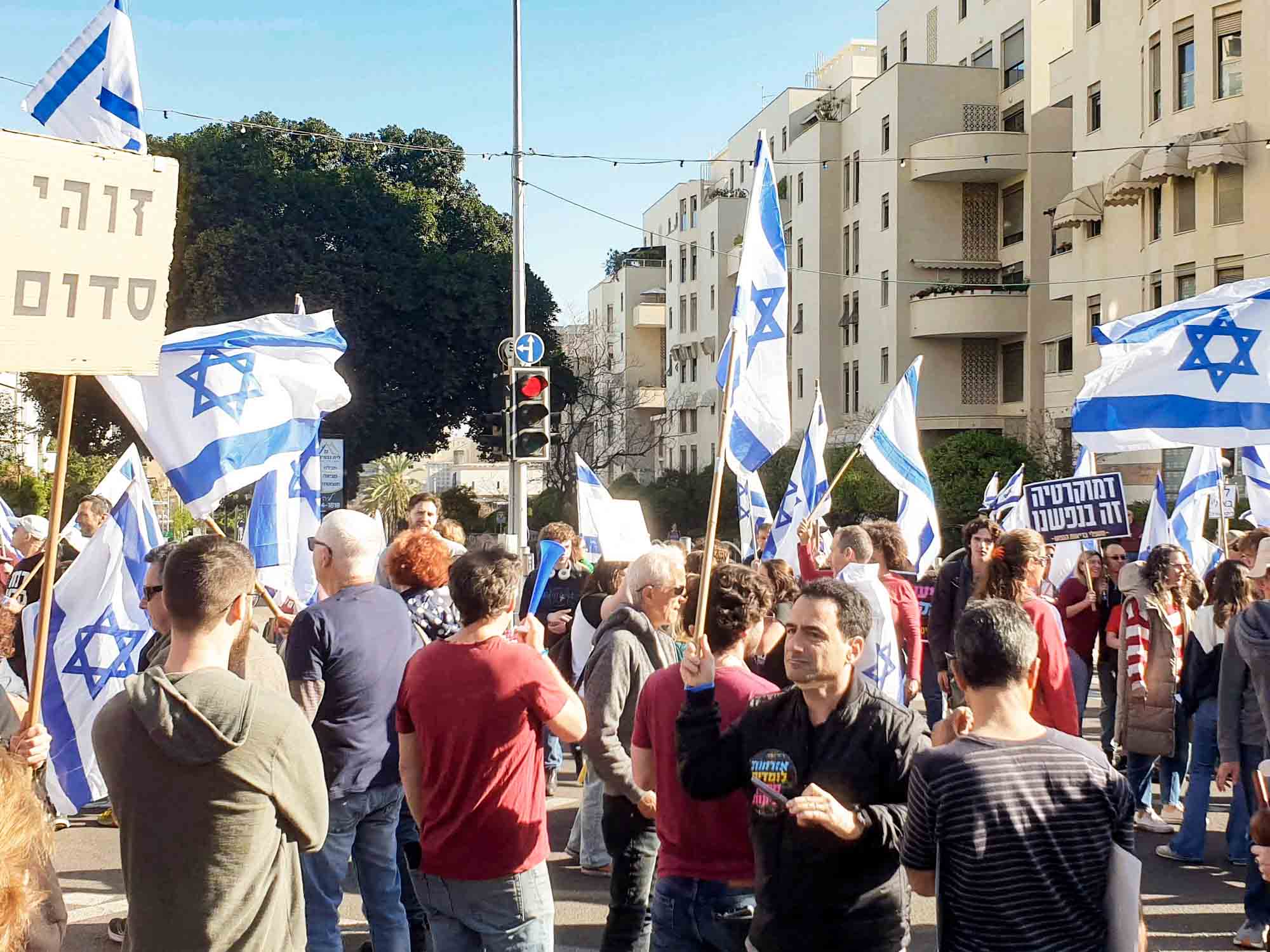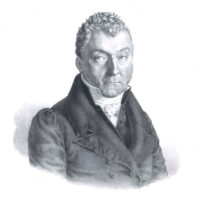At the protests in Israel, thousands of national flags can be seen: regarding mixed feelings.
Hundreds of thousands of people have taken to the streets for the last three months to preserve democratic government. Protests have again intensified since Prime Minister Netanyahu’s recent dismissal of the Defence Minister. During a meeting late Sunday night, a week ago, the citizens of Tel Aviv suddenly jumped up and went to a spontaneous large-scale demonstration — one that hadn’t been organized, but that was able, within two hours, to bring what felt like the entire country onto the streets. There were people chanting, and flags everywhere.
Opponents of the government have chosen the Israeli flag as a symbol of protest, a sign that unites opposition, on the left and the right, in the current circumstances. A call that sounds to me like, ‹This is our country, our democracy›. It raises the question of identity; the sign of the nation, and symbol of the oppression of the Palestinian people, has now become a sign of resistance. The mass display of flags and sense of unity is also repulsive to some who have joined the protests. It is a political tool that marks the struggle for Israeli identity, but it is also a move to mobilize the masses. Do the ends justify the means? From the ‹earthly› point of view, the concept, not only in Israel, seems understandable to me, and it follows the logic of political work today. On the other hand, the whole thing also seems a bit ‹off-center›: replacing ‹like› with ‹like› only creates the old anew, but nothing new – who then will create something entirely different, something for the future that will open up beyond these categories? To assert identity against superiority and against encroachment is necessary – the border is a contradictory means. However, the attachment to nationalism and the staking out of fictitious identities remains something backward.
Translation Eliza Rozeboom
Title image Protests in Kfar Saba, Israel, March 2023. Photo: Omer Toledano









